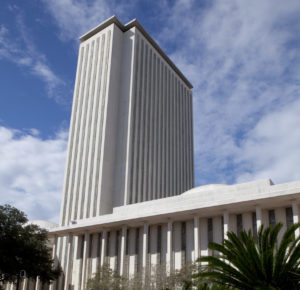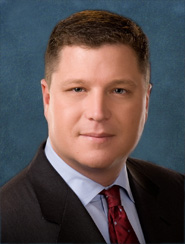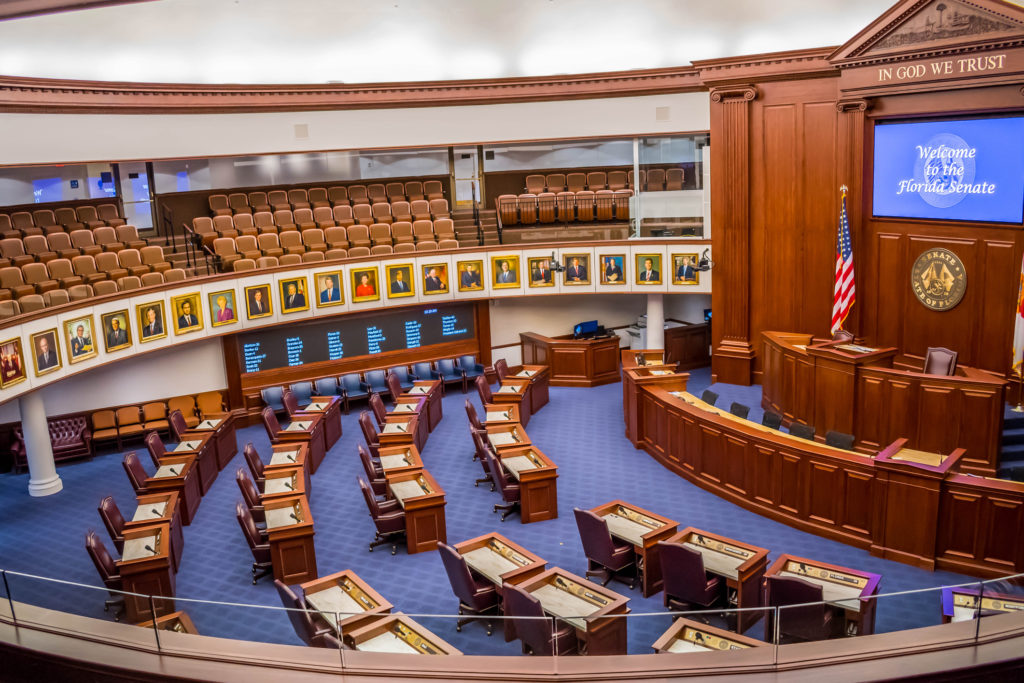
Fla. bills would alter rules for access, limit attorney fees on home insurance lawsuits
By onInsurance | Legal | Market Trends
Florida Sen. Jeff Brandes, R-Saint Petersburg, has filed a couple of other Florida bills with potential ramifications for body shops and customers besides the third-party-insurer-lawsuit-curtailing Senate Bill 924.
Here’s a look at the other measures.
SB 1334
Senate Bill 1334 is wide-ranging. Its many changes proposed for Florida Statutes include banning “vague” demands of claims handling changes in pre-lawsuit notices, potentially making more information protected trade secrets instead of public and eliminating a 48-hours-notice rule for insurers to see property in a claim.
Under Florida Statute today, anyone planning on suing must have given 60 days written notice to the Department of Insurance and insurer on a form provided by the DOI. The bill would add a requirement that this form now contain:
“The damages to be paid by the insurer for the claim, available under and pursuant to the express terms and conditions of the policy, less any amount earlier paid by the insurer and any applicable policy deductibles. The notice may not demand vague remedial action regarding changes to claims-handling procedures or practices.”
While a prospective plaintiff should know how much money they feel they’re owed by a carrier, it seems less likely they would be able to pinpoint a specific claims handling behavior they wish changed without the discovery process.
Brandes argued that “you should at least know what you’re asking for” if you reached the point you were ready to sue their insurer.
“I don’t think that’s unreasonable,” he said.
Claimaints also lose their ability to refuse an insurer to see property when the carrier hasn’t provided 48 hours notice. The bill deletes 626.854(13), which states:
A company employee adjuster, independent adjuster, attorney, investigator, or other persons acting on behalf of an insurer that needs access to an insured or claimant or to the insured property that is the subject of a claim must provide at least 48 hours’ notice to the insured or claimant, public adjuster, or legal representative before scheduling a meeting with the claimant or an onsite inspection of the insured property. The insured or claimant may deny access to the property if the notice has not been provided. The insured or claimant may waive the 48-hour notice.
Brandes said the point here was for everyone to act reasonably. A claimant couldn’t deny an insurer access to property indefinitely and say “‘just trust us'” about the damage.
“You can’t deny access,” he said.
The bill also demands Floridians and businesses trust the Florida Department of Insurance not to let insurers excessively claim trade secret protection to the point that the agency doesn’t share certain aggregate data with the public.
“Aggregate information may include information asserted as trade secret information unless the trade secret information can be individually extrapolated, in which case the trade secret information remains protected as provided under s. 624.4213,” the bill would add.
“… When aggregate information includes information asserted as trade secret information, the office may include the trade secret information in the report required under subsection (1) or may make the trade secret information available under subsection (2) unless the trade secret information can be individually extrapolated, in which case the trade secret information remains protected as provided under s. 624.4213.”
 Finally, the bill adds a couple of provisions to homeowners’ insurance Statute 627.7015 that repairers should watch for possible appearances into auto insurance down the road.
Finally, the bill adds a couple of provisions to homeowners’ insurance Statute 627.7015 that repairers should watch for possible appearances into auto insurance down the road.
The bill would add Statute 627.70152, which would require an itemized invoice of work and potentially “proof that the work has been performed in accordance with accepted industry standards”:
As a condition precedent to filing suit under a property insurance policy, the named insured must provide the insurer with a written notice of intent to initiate litigation before filing suit under the policy. Concurrent with the notice and as a precondition to filing suit, the named insured must provide a detailed written invoice or estimate of services, including itemized information on equipment, materials, and supplies; the number of labor hours; and, in the case of work performed, proof that the work has been performed in accordance with accepted industry standards. The notice must be served at least 10 business days before filing suit by certified mail, return receipt requested, to the name and address designated by the insurer in the policy forms or by electronic delivery to an e-mail address designated by the insurer in the policy forms, but may not be served before the insurer has made a determination of coverage under s. 627.70131. The notice must specify the damages in dispute and the amount claimed. An insurer must acknowledge receipt of the notice in writing within 10 business days after receiving the notice.
The insured also has the burden of proving that the insurer wasn’t prejudiced because they failed to “cooperate with the insurer in the claim investigation, including, but not limited to, failing to allow the insurer to inspect the property.”
The “named insured” also must “sign any complaint seeking relief” under the new statute.
An August 2019 Milliman study commissioned by the American Property and Casualty Insurance Association, has made the case that Florida’s bad faith laws are driving up premiums.
“Based on our research and interviews with industry practitioners, Florida is generally regarded as one of the most challenging jurisdictions in the country for insurance carriers in the context of bad faith,” Milliman wrote.
“Expenses for claims handling are increasingly incurred to respond to ever evolving changes in the way claims are presented in order to access the bad faith litigation process. According to our research, Florida loss adjustment expenses relative to losses for motor vehicle insurance have risen to be more than 50% greater than similar countrywide averages in recent years. An analogy could be made to insurers practicing defensive claims handling similar to doctors practicing defensive medicine to avoid malpractice claims. Besides managing an increasing number of claims, claim practitioners also expressed concern over two recent Florida court decisions – Bannon v. Geico Gen. Ins. Co. and Harvey v. Geico Gen. Ins. Co. – that nearly all agreed would further affect the bad faith environment in Florida.”
The actuarial firm calculated that Florida bad faith lawsuits cost insurers $4.6 billion every year. Of course, this ignores any amount of that $4.6 billion that insurers should have been paying in the first place or are only paying because they denied a legitimate claim (i.e., attorneys fees). Nevertheless, Milliman estimated in an “Medium” scenario that all property and casualty insurance lines together produced a 13.5 percent premium increase.
Senate Bill 914
Brandes’ Senate Bill 914 could reduce the likelihood of claimants securing counsel or bringing lawsuits against homeowner’s insurers. Despite this narrow scope, it’s still worth watching by shops in case lawmakers this session or in the future consider expanding the concept to auto insurance.
Initially, SB 914 entirely banned contingency risk awards, which award more than the attorney would normally obtain (the “lodestar”) to compensate counsel for taking the risk of the case.
The Senate Banking and Insurance Committee voted 5-3 for an amended version which instead held:
In an award of attorney fees under this section for a claim arising under a property insurance policy, a strong presumption is created that a lodestar fee is sufficient and reasonable. Such presumption may be rebutted only in a rare and exceptional circumstance with evidence that competent counsel could not be retained in a reasonable manner.
The Florida Supreme Court in 2017 ruled on Joyce v. Federated National that the Fifth Circuit Court of Appeals screwed up by imposing a rare and exceptional threshold on a contingency award. It instead backed the trial court’s 2.0 multiplier, at one point quoting the trial court to observe:
Although the Joyces did not seek any other counsel prior to retaining [their attorney], the Court finds based upon the evidence presented, including the testimony of [the Joyces’ attorney] and [attorney’s fees expert], any such search would have been futile as there are few or no other attorneys who undertake this work who have offices in the St. Augustine area. The evidence shows that the plaintiffs would have been unlikely to have found any attorney in the St. Augustine area with a competency in first party [insurance coverage litigation] who would have agreed to take [their case] without the possibility of a contingency fee risk multiplier.
Attorney Erica Eversman (Vehicle Information Services) has pointed out that counsel knowledgeable about the collision industry can be hard to find.
Brandes said Friday that the change merely brought Florida in sync with other parts of the country.
“We’re just moving to the standard” shared by other states and the federal courts, he said.
The Supreme Court has indeed instituted a standard for federal courts similar to that adopted by the committee, according to the Joyce ruling. However, the Florida Supreme Court said in Joyce it disagreed with the federal high court and was free to set its own rules with regard to state law.
“To the extent that Respondents and their amici ask us to eliminate the contingency fee multiplier in all but the ‘rare’ and ‘exceptional’ case where attorney’s fees are awarded, we decline to adopt the reasoning of the United States Supreme Court in Perdue and Dague,” the Florida Supreme Court wrote. “First, this Court is not bound, in interpreting state statutes or prevailing party attorney’s fees in contracts, by United States Supreme Court precedent interpreting awards of attorney’s fees in federal statutes.
“Second, with all due deference to the United States Supreme Court, we do not accept the Dague majority’s rationale for rejecting contingency fee multipliers. Justice Scalia, writing for the majority in Dague, couched his disapproval of contingency fee multipliers by reasoning that the multipliers incentivize nonmeritorious claims, so that those claims are effectively raised as often as meritorious claims. …
“To the contrary, the contingency fee multiplier provides trial courts with the flexibility to ensure that lawyers, who take a difficult case on a contingency fee basis, are adequately compensated. We also do not agree that the contingency fee multiplier encourages ‘nonmeritorious claims’ and would, instead, posit that solely because a case is “difficult” or “complicated” does not mean that the case is nonmeritorious.”
No hearing has been scheduled for SB 1334. SB 914 has sent to the Judiciary Committee.
Be heard: Florida lawmaker contact information can be found here and here.
Images:
The Florida Capitol is shown. (Aneese/iStock)
Florida state Sen. Jeff Brandes, R-Saint Petersburg. (Provided by Florida Legislature)
Florida’s Senate Chamber is shown Feb. 15, 2019. (Cheri Alguire/iStock)

